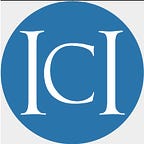UMass Boston Hosts the 2023 Tribal and Indigenous Health Summit
Tribal and Indigenous Leaders, Health Advocates, and Regional, State, and Local Representatives from across New England Gathered for the Inaugural Summit
On September 28, 2023, the Institute for Community Inclusion (ICI) joined the Tribal and Indigenous Health Summit, led by the Massachusetts Department of Public Health.
Elizabeth Solomon, Elder of Massachusett Tribe at Ponkapoag, opened the Summit with a Tribal land acknowledgement, and welcomed attendees to her territory. Tribal Chair Brian Weeden of the Mashpee Wampanaog Tribe led the group in prayer. UMass Boston is on the traditional land of Massachusett people.
Throughout the day, Tribal and Indigenous leaders and others talked about mental health, the COVID-19 response, public health data, and substance abuse prevention, treatment, recovery, and harm reduction in Tribal and Indigenous communities.
Chairwoman Cheryl Andrew-Maltais of the Aquinnah Wampanoag Tribe of Gay Head addressed the audience in her Keynote speech:
“Miraculously, through our strength, courage, and resiliency, we’re here today to make positive changes in our Tribal communities’ health…By working together, we can build a better healthcare system for our people. By listening to us and our traditional cultural knowledge and incorporating our traditional medicinal practices, we can develop effective means to have better healthcare outcomes for our peoples.”
Several staff and faculty from ICI and the School for Global Inclusion and Social Development (SGISD) attended the Summit to learn about the rich history and strengths, challenges, and health threats facing Tribal and Indigenous communities across the nation. SGISD’s new Director Dr. Tiffany Donaldson expressed gratitude for sharing this space of learning with Tribal leaders:
“I learned so much through our work with Tribal leaders about cultural history and commitment to raising awareness about Native Health inequities and barriers to access. We will continue to partner with Tribal leaders and Indigenous communities to learn about what worked in the COVID pandemic and to promote health and wellness in areas of interest to Native people.”
ICI and SGISD staff also learned about colonialism’s devastating impact on Native health. ICI Senior Research Fellow Dr. Susan Foley was honored to hear from tribal leaders, elders, Native doctoral students, Native researchers, Native mental health providers, Indian Urban Health, Indian Health Services, and Tribal and Indigenous People Serving Organizations. She shared about her learnings and ongoing commitment to advocacy:
“We heard calls for action unequivocally pointing to existing threats to tribal community well-being. As researchers in disability services, we will strongly advocate for more Native disability research capacity and support for Native researchers. We will continue to partner with Dr. Cedric Woods at the Institute for New England Native American Studies on the Native Equity in Employment and Recovery Project, with deep respect and friendship.”
Dr. Cedric Woods is the Director of UMass Boston’s Institute for New England Native American Studies (INENAS) and served on the planning committee for the Summit.
ICI Senior Research Associate Dr. Allison Taylor echoed these sentiments:
“It was a gift to experience the Campus Center Ballroom as a Native space and to be invited as a guest into that space, as we looked out on the land and waters of the Massachusett people. I was struck by the many examples of Native ingenuity, perseverance, and resilience to foster community health and well-being, within a context of ongoing erasure, inequity, and injustice.”
Two UMass Medical School PhD students who are Mashpee Wampanoag tribal members wrapped up the Summit with a brief tribal history and discussion of the impact of historical trauma. They also talked about how and why they decided to pursue Tribal health professions and what that will mean to the Tribal and Indigenous communities they represent.
Quinn Barbour, ICI’s Senior Marketing and Communications Manager, took photographs to commemorate this inaugural event.
Information from this article was also obtained from Crystal Valencia’s piece, “Chancellor, State Health Officials, Tribal Leaders Gather for Tribal and Indigenous Health Summit.”
Indigenous Peoples’ Day
This year, we observe Indigenous Peoples’ Day on Monday, October 9. Observing Indigenous Peoples’ Day is an act of solidarity with Native Peoples. Indigenous Peoples’ Day has replaced Columbus Day in many locales. Christopher Columbus exploited and enslaved Taíno Peoples and appropriated their homelands. Observing Columbus Day celebrates colonialism and memorializes the demographic collapse, enslavement, and attempted erasure of Native Peoples in the Americas.
This October, take some time to learn more about indigenous people and cultures. Here are some additional resources to explore:
§ Native Reads: Books from Indigenous Communities
§ Living Nations, Living Worlds: A Map of First Peoples Poetry
§ Indigenous People’s Day: Red Lake Nation News
§ Praying Towns in Massachusetts: History
§ Association on American Indian Affairs
§ National Geographic: Native American imagery is all around us, while the people are often forgotten
§ New York Times: Lost Lives, Lost Culture: The Forgotten History of Indigenous Boarding Schools
§ Indian Law Resource Center: Ending Violence against Native Women
§ Walking in Two Worlds: Supporting the Two Spirit and Native LGBTQ Community
§ Workforce GPS: Native American Disability Resource Hub
§ Videos produced by the Native American Disability Law Center
Are you interested in learning more about UMass Boston’s Institute for New England Native American Studies? Contact Director Cedric Woods at Cedric.Woods@umb.edu.
Are you interested in learning more about UMass Boston’s Native American and Indigenous Studies Minor? Contact Director Maria John at maria.john@umb.edu with questions about this academic program.
This blog includes excerpts from the 2021 SGISD blog, New UMass Mural Welcomes Native Students to UMass Boston Campus.
